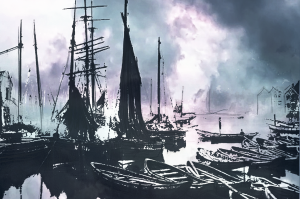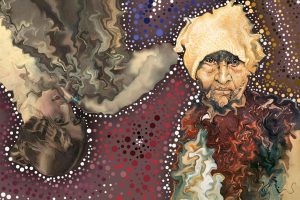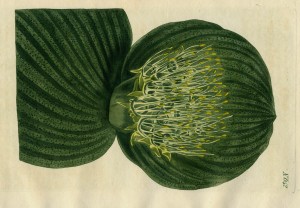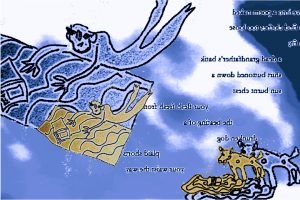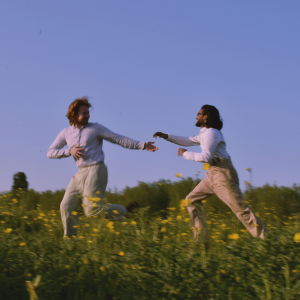Musings on Charles Bukowski from a giant salamander farm in Japan
by Kara Goldsmith | September 18, 2024
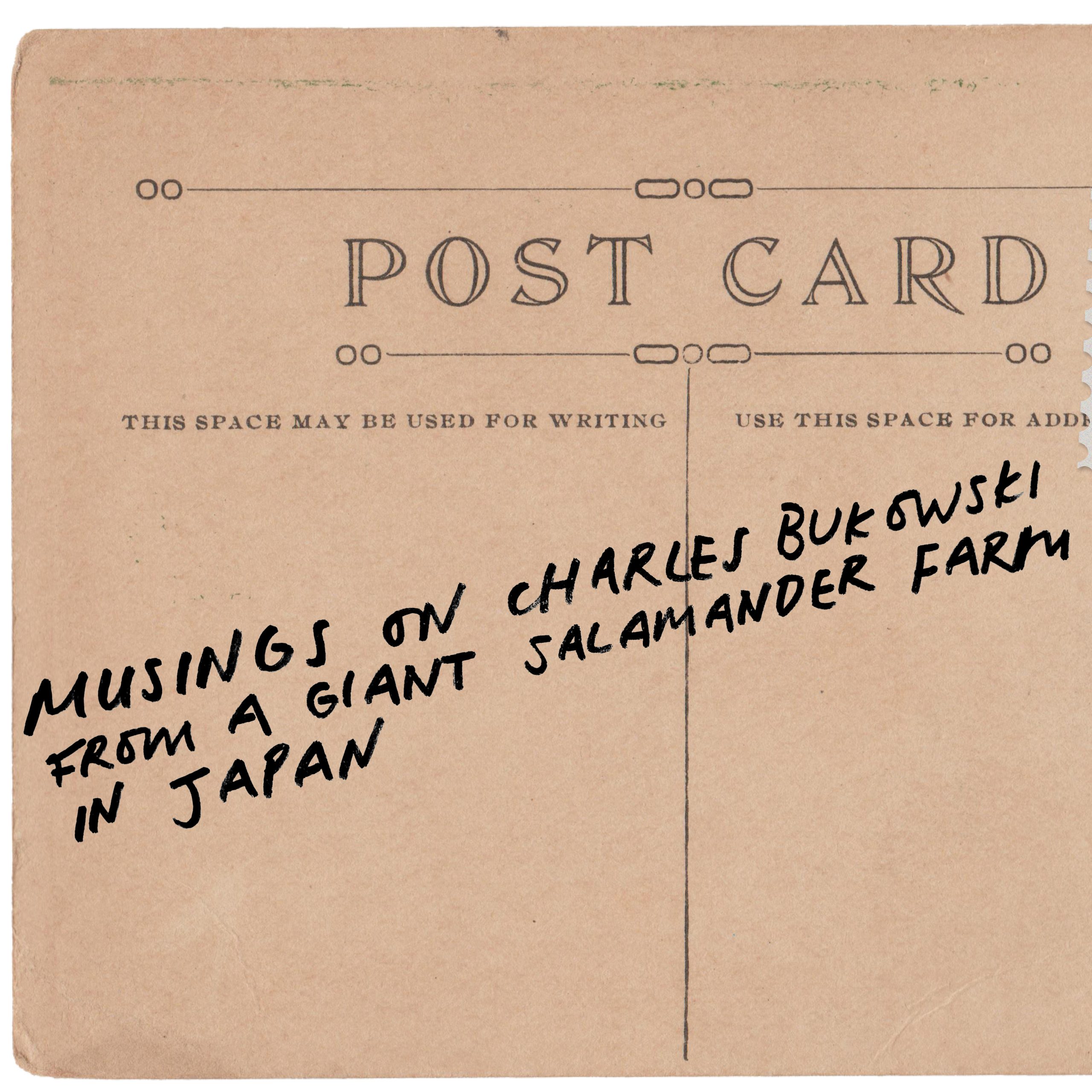
I discovered Charles Bukowski by chance when I was 19 in London last summer. I was peering through the front display books at Word on the Water, a charming little bookshop in a canal boat right by King’s Cross when I discovered Bukowski’s poem ‘that’s why funerals are so sad.’
The unfettered free verse and rambling diction occupies the majority of this unusual two stanza poem, with no rhyme scheme or structure to pull the poem into something vaguely cohesive. Alongside this, the uninhibited and seemingly lighthearted descriptions of a sleazy, unnamed boxer with the “best right hand in the business” and a strong affinity for “the ladies” lures the reader into the false sense of security that comes with a light-hearted, jovial poem. Then you reach the final short stanza and the simple, understated line that has stayed with me (as many things do when you are nineteen and overly sentimental):
“you have no idea, cousin, how many men can do it but won’t.”
This line made me think about the fragile potential of youth, meaning I thought about a lot of people I know, including myself. It also led me to read more of Bukowksi’s poetry, including ‘mind and heart’ and ‘the great escape,’ but more on those later.
For my summer of second year I landed myself a corporate-ish internship in central London and carved out time for my degree work, but also vowed to go out and just do things. Carpe diem and all that. So when, in the depths of Michaelmas term, with all its hecticness, sleep deprivation, and chaos, my good friend rang me from Australia asking me if I wanted to go to Japan with him, I thought yeah, why not? I couldn’t think of a single good reason to say no, and how many times in my life will I get the opportunity to just go to Japan? Following several months of searching Skyscanner and traipsing through the depths of the Workaway website, we happened upon a giant salamander farm in (very) rural Japan. A few clicks later and we were signed up.
July rolled around and alone I flew, with no idea of what to expect from this foreign and utterly faraway place. I never had the chance or inclination to do a gap year, so a long-haul flight alone across the world with multiple stops and layovers proved daunting. After a day and a half of solo travelling, I arrived in my stuffy forty floor airport hotel with a crushing sense of loneliness, a severe case of jet lag, and the huge expectation that this trip must be incredible and provide me with the great escape promised by the likes of Bukowski’s poetry, amongst other things. I also didn’t speak a word of Japanese.
The most outlandish element of the trip was obviously the salamander farm we stayed on and worked at. It turns out that hard (unpaid) manual labour in 35°C heat with 90% humidity might not be worth neither bed and board nor being able to claim that you went to a giant salamander farm in Japan. My inability to speak Japanese also proved a major hindrance in rural Japan, as one might imagine, and I missed spontaneous small talk as well as the privilege of understanding of the world around me. Needless to say, the farm did not unlock the great potential of my youth. I did see some salamanders though, giant ones.
And honestly, parts of the trip proved to be beyond incredible, and did provide me with a ‘great escape’. I will never forget the peaceful and beautiful afternoons spent cycling through the Japanese countryside after working like dogs on the farm all morning in the scorching heat, and the discoveries of wonderful places and people in our borrowed and beaten up car that we never would have found as regular tourists. I’ll remember the bustling food markets in Osaka and the little jazz café in Kyoto that we spent hours sat in, just observing. I’ll remember the initial culture shock of going to the onsen (gender segregated naked spas, essentially) and the overwhelming largeness of Tokyo, countered by daily sunbathing in the historic, shrine-filled national park. I loved the spontaneous nights out to karaoke bars with strangers met in hostels and the seeming endlessness of people to be met, sights to be seen, and things to be learnt in a place so far from home.
But ultimately I left Japan deciding that Bukoswki was wrong and there is no great escape. There is not one thing or one place or one month of your life that will change you and lead to this great becoming. Wherever you are and whatever you do you will still wake up, eat bad food, drink too much instant coffee, answer your phone, call your mum, miss your mum, think about your hometown, think about your university town, spend too much time on social media, read bad news, get too drunk, rinse and repeat. Because you’re still just you in a different place; that is the big tragedy of it all. There is no great becoming and there is no great escape from the recurring anxieties about panic masters and starting salaries for graduate jobs and how the hell am I going to afford rent prices in London, no matter what giant salamander farm in rural Japan I ship myself off to. I hate to be the bearer of bad news, but there is no great escape from it. But there is a greatness to be found in the small moments of travelling and discovery. The discovery of a new food or place or person that makes you think I’m doing it and “the TIME is NOW”. My life is something that is happening here and now and I am a part of it. And you can’t escape but you can “drink from the wells of yourself and begin again”, as Bukowski once said. So maybe he was right about a few things.
Words by Kara Goldsmith. Image courtesy of Alice Robey-Cave.
